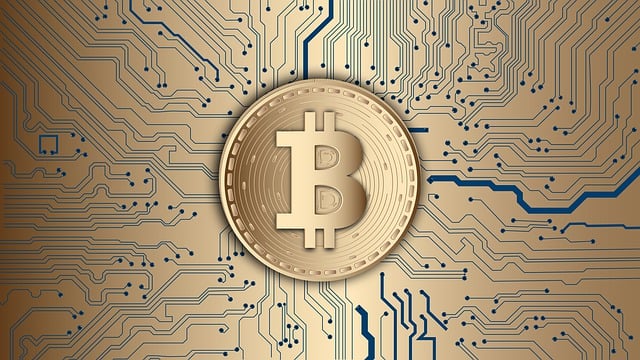The integration of quantum computing poses a threat to traditional cryptocurrency security due to its ability to solve complex cryptographic problems faster than current technology allows. However, it also presents an opportunity for financial institutions, particularly those utilizing XRP and Ripple's blockchain network, to bolster defenses through quantum-resistant algorithms. By adopting these advancements, they can safeguard transaction integrity and user privacy against future quantum capabilities, ensuring a robust and secure cryptocurrency ecosystem.
In today’s digital era, the partnership between Ripple and banks through XRP is transforming global transactions. As financial institutions embrace blockchain technology, securing these transactions becomes paramount. This article explores how quantum computing can bolster crypto security within these partnerships. We delve into the symbiotic relationship between Ripple, XRP, and banks, highlighting how cutting-edge technology enhances secure transaction processes, paving the way for a more efficient and robust global financial system.
- How Quantum Computing Can Enhance Crypto Security in XRP Partnerships
- The Role of Ripple and XRP in Bank Collaboration: A Look at Secure Transactions with Blockchain Technology
How Quantum Computing Can Enhance Crypto Security in XRP Partnerships

The integration of quantum computing could significantly enhance the security of cryptocurrency partnerships, especially for XRP. Traditional cryptographic methods rely on complex mathematical problems that are currently beyond the reach of computational power. However, with quantum computers, these problems become solvable in a fraction of the time, posing a potential threat to existing blockchain security. Yet, this very nature also offers an opportunity to fortify defenses. By utilizing quantum-resistant algorithms and protocols, such as those being developed for XRP’s network, financial institutions can ensure their data remains secure even in the face of advanced computational capabilities.
Incorporating quantum computing principles allows for enhanced encryption techniques, making it exceedingly difficult for unauthorized entities to manipulate or intercept sensitive information. This is crucial for banks partnering with XRP, as it safeguards transaction integrity and user privacy. With the continuous evolution of quantum technology, staying ahead of security measures will be vital for maintaining a robust and reliable cryptocurrency ecosystem.
The Role of Ripple and XRP in Bank Collaboration: A Look at Secure Transactions with Blockchain Technology

Ripple and XRP play a pivotal role in fostering collaboration between banks, revolutionizing secure transactions through blockchain technology. The core strength of Ripple lies in its ability to provide a decentralized, fast, and cost-efficient global payment network, addressing long-standing pain points in traditional cross-border money transfers.
XRP, the native cryptocurrency of the Ripple network, serves as a bridge currency, enabling near-instant settlements across different fiat currencies. By leveraging blockchain, Ripple offers enhanced crypto security, making transactions tamper-proof and transparent. Moreover, with the advent of quantum computing looming on the horizon, traditional cryptographic methods are at risk, but Ripple’s distributed ledger technology (DLT) employs advanced consensus mechanisms that can withstand these emerging computational power shifts, ensuring the longevity of its secure transaction platform.
Quantum computing, with its immense power, has the potential to revolutionize crypto security. In the context of Ripple’s XRP partnerships with banks, this technology can significantly enhance transaction speed and safeguard sensitive data. By leveraging quantum-resistant cryptography, XRP transactions become even more secure against emerging computational threats, fostering a robust and reliable banking ecosystem for the future.
